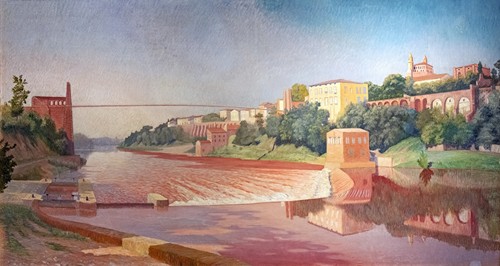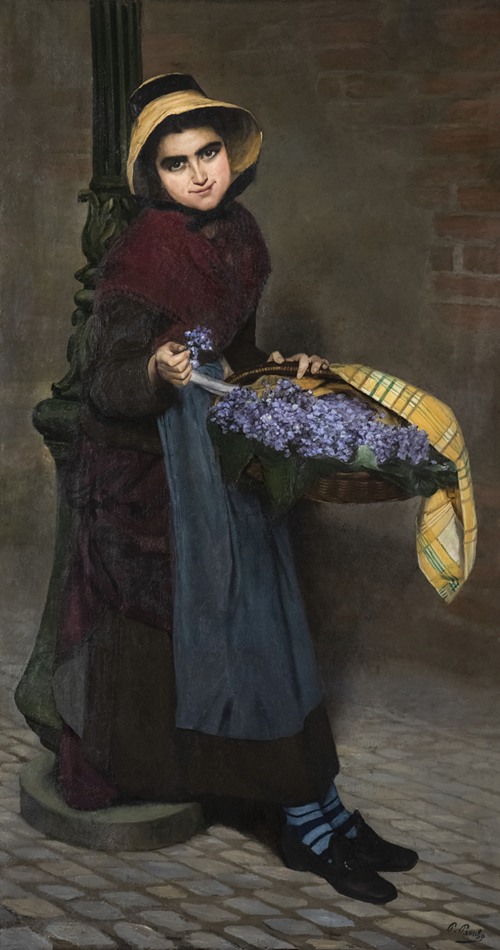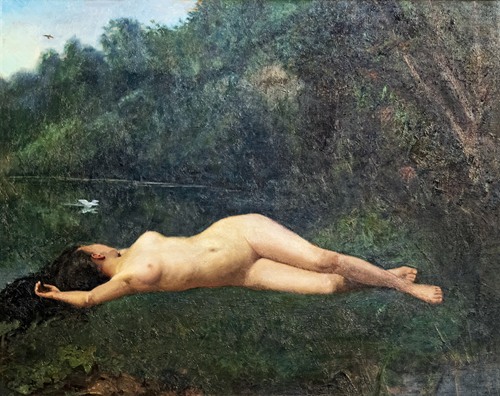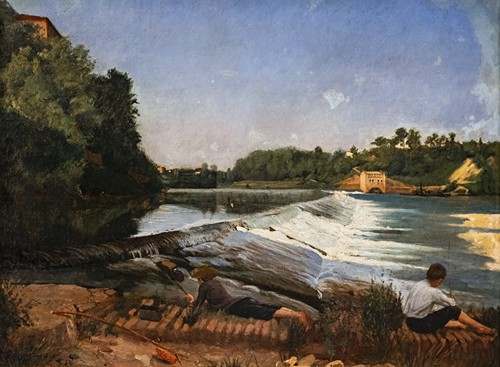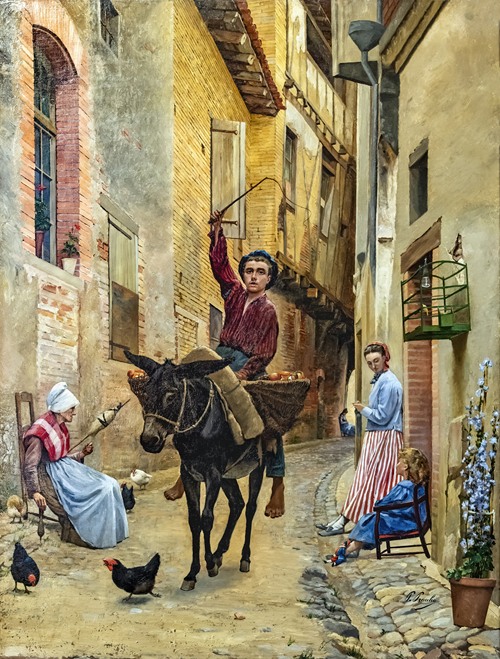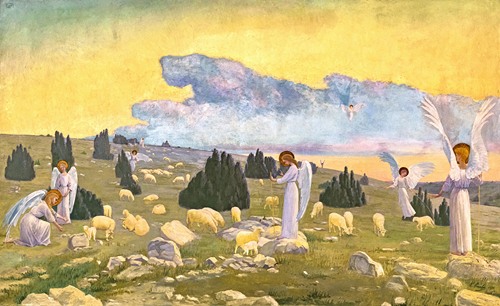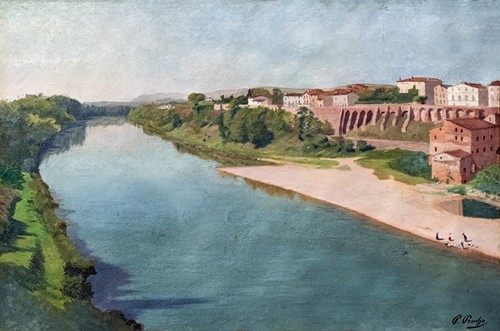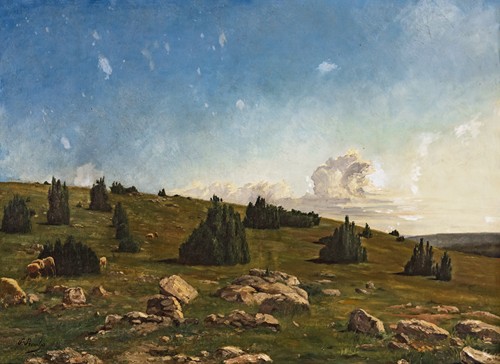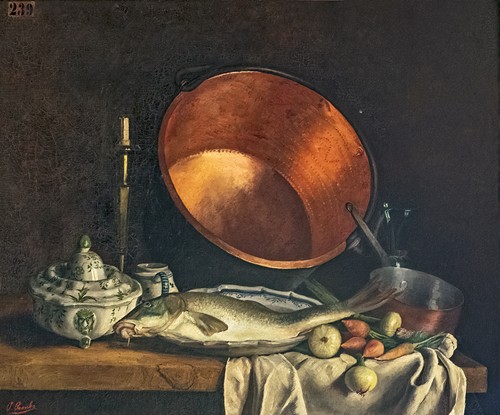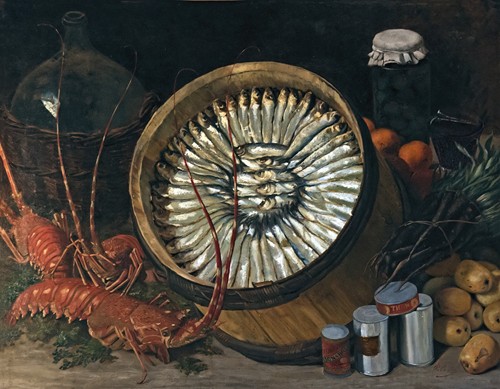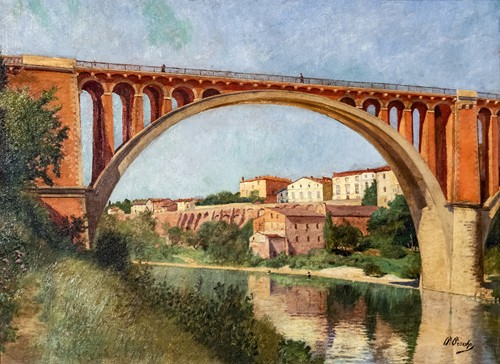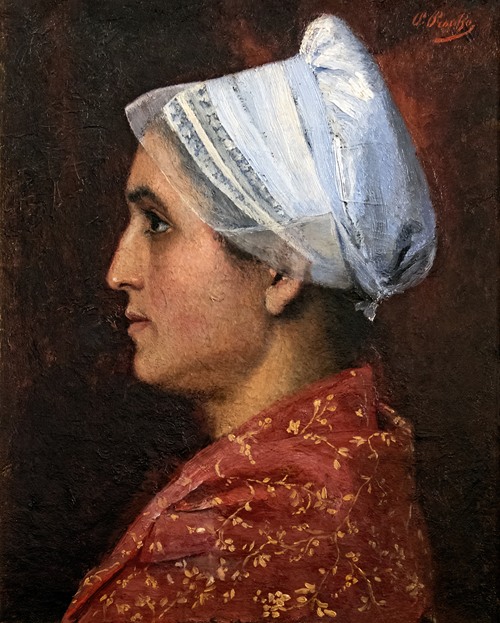
Paul Prouho, born August 22, 1849 in Rabastens and died March 6, 1931 at the Château de Rabastens, was a painter and félibre.
His father Abdon Prouho, a law graduate, was mayor of Rabastens from 1857 to 1870, then from 1871 to 1878, and general councillor from 1861 to 1870, then from 1871 to his death in 1879.
His brother Henri, born in 1854, became an engineer and then a marine biologist. He returned to Rabastens in 1897 for health reasons, where he died in 1921.
He was the nephew of Colonel Du Pin, leader of the Mexican counter-guerrilla.
He served in the 1870-1871 war. In 1875, he was listed as a reserve second lieutenant in the 83rd line infantry regiment in Albi.
Paul Prouho was a pupil of Léon Bonnat, influenced by Puvis de Chavannes and the Symbolist movement. He worked in Paris, Belfort and Aveyron. He exhibited in Paris at the 1877 and 1879 Salons, then at the 1880 and 1881 Salons des artistes français and the 1894 Salon de la Rose-Croix, and at the 1877, 1886, 1888 to 1892, 1894, 1900 and 1905 Salons de l'Union artistique de Toulouse and the 1904 Salons d'Albi.
A portraitist, still-life and landscape painter, he also created large-scale murals for churches (in Giroussens and Lavaur) and private mansions. He was portraitist to Julien de Lagonde, the Marquise de Suffren and Comte Gardès.
Paul Prouho is less well known for his Occitan poetic work, linked to the early Félibrige period and directly inspired by Frédéric Mistral, whom he discovered at the Santo Estello d'Albi in 1882; Raymond de Toulouse-Lautrec was then Syndic of the Maintenance félibréenne du Languedoc.
His poetic works were published after his death, providing a better understanding of his ideas. The author of numerous poems for special occasions (in particular weddings in his entourage), often pretexts for digressions on language and his preoccupation as a félibre, he also wrote other poems that reveal a very fine perception of nature and rural life. In still others, he gives free rein to his patriotic and religious moods, and to his anti-German rancor dating back to the siege of Paris in 1870, in which he participated.
He was a laureate of the Grands jeux floraux du Félibrige.
He is the founder of La Lauzeta rabastinhòla, a newspaper in Occitan.
